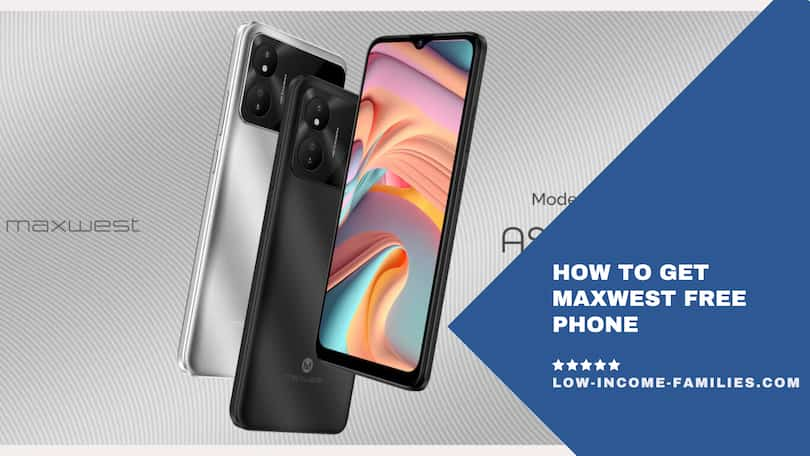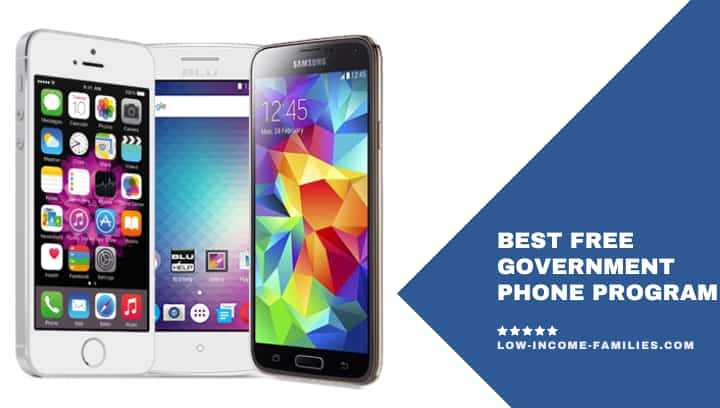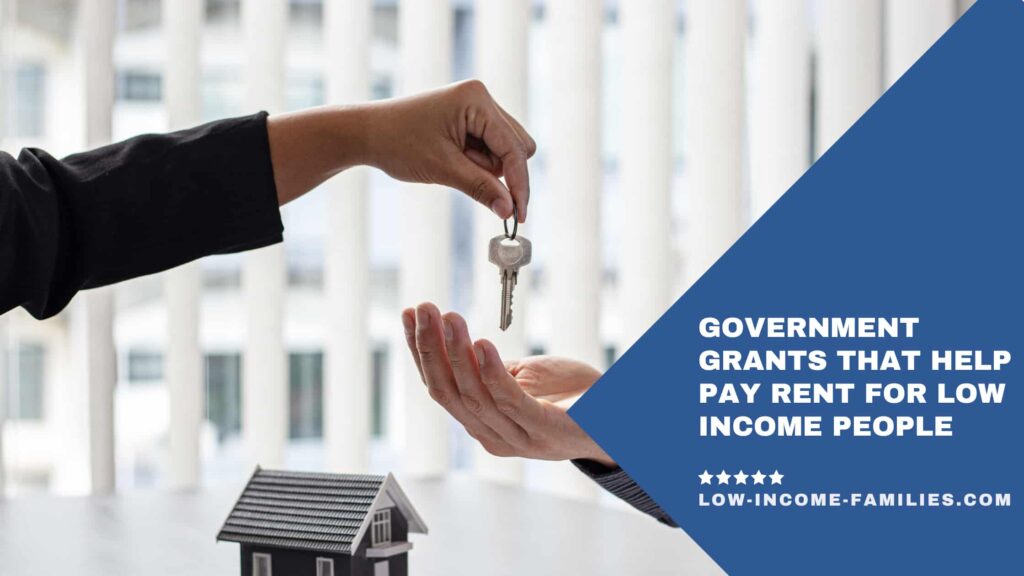In today’s economic landscape, access to reliable transportation is not just a convenience; it’s often a necessity for daily living.
However, for individuals facing unemployment or living on a low income, owning a car can feel like an unattainable luxury.
This is where initiatives offering free cars for unemployed low-income individuals step in, serving as a beacon of hope for those grappling with financial hardship and transportation barriers.
These programs recognize the significant impact that a lack of transportation can have on individuals’ ability to secure employment, attend essential appointments, and access crucial services.
By providing donated vehicles to those in need, these initiatives offer more than just a mode of transportation; they provide a lifeline, empowering recipients to regain independence and stability in their lives.
In this article, we will delve into the world of free cars for unemployed low-income individuals, exploring the eligibility criteria, application processes, and the invaluable support these programs offer to those in need.
From understanding the various organizations and nonprofit entities involved to providing insights into how these initiatives positively impact individuals’ lives, we aim to shed light on the importance of such programs in fostering economic mobility and inclusivity within our communities.
More About Free Cars for the Unemployed
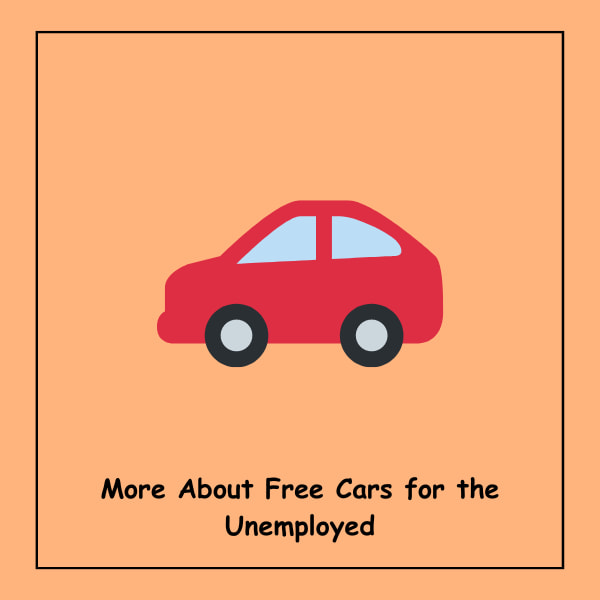
When delving deeper into understanding more about free cars for the unemployed, it’s essential to recognize the multifaceted impact these programs have on individuals and communities alike.
These initiatives go beyond merely providing a means of transportation; they offer a pathway to economic stability and self-sufficiency for those facing financial hardship.
By removing the barrier of transportation, individuals can more readily access employment opportunities, attend job interviews, and participate in workforce development programs.
Moreover, free cars for the unemployed contribute to the overall well-being of recipients by enabling them to access essential services such as healthcare, education, and social support networks.
This access, in turn, fosters social inclusion and community engagement, empowering individuals to lead fulfilling and productive lives.
Additionally, these programs often rely on the generosity of donors, including individuals, businesses, and charitable organizations.
Through their donations, these stakeholders play a vital role in addressing transportation inequality and promoting equitable access to opportunities for all members of society.
In summary, free cars for the unemployed represent more than just a charitable gesture; they embody the principles of compassion, solidarity, and empowerment.
By further understanding the intricacies of these programs and their far-reaching benefits, we can better appreciate their significance in creating a more just and inclusive society.
What are the Free Cars For the Unemployed
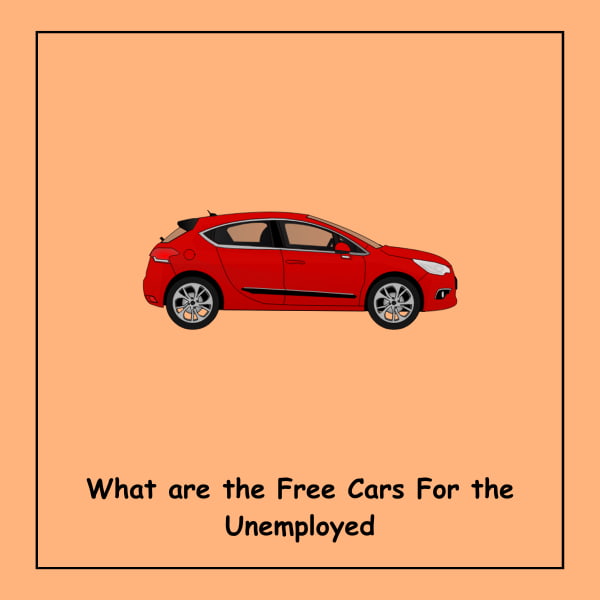
Free cars for the unemployed refer to vehicles provided to individuals who are currently without a job or are living on a low income.
These cars are typically obtained through donation programs facilitated by various organizations, nonprofit entities, and charitable foundations.
The donated vehicles vary in make, model, and condition but are generally roadworthy and suitable for transportation purposes.
These initiatives aim to address the significant barrier that a lack of transportation poses to individuals’ ability to secure employment, access essential services, and participate fully in their communities.
By providing free cars to those in need, these programs offer a lifeline to individuals facing financial hardship and transportation challenges, empowering them to regain independence and mobility.
Recipients of free cars for the unemployed may include individuals who have recently lost their jobs, those experiencing long-term unemployment, or individuals living in underserved communities with limited access to public transportation.
Through these initiatives, individuals can overcome transportation barriers, pursue employment opportunities, attend job interviews, and ultimately work towards achieving financial stability and self-sufficiency.
Overall, free cars for the unemployed represent a vital resource for individuals facing economic hardship, offering not only a mode of transportation but also hope, opportunity, and the chance to rebuild their lives.
How to Get Free Cars For Unemployed Low-Income

Obtaining free cars for unemployed low-income individuals involves navigating through specific processes designed by organizations and charitable entities. Here’s a guide on how to access these programs:
- Research Organizations: Begin your journey by thoroughly researching organizations, nonprofits, and charitable foundations in your local area that offer free cars for the unemployed. You can start by searching online or contacting community centers for information. Look for programs specifically tailored to individuals facing financial hardship due to unemployment or low income. Additionally, consider reaching out to government agencies or social service organizations for potential leads on available assistance programs.
- Review Eligibility Criteria: Once you’ve identified potential programs, carefully review their eligibility criteria. These criteria may vary depending on the organization and the specific program requirements. Typical eligibility factors include income level, employment status, residency, and demonstrated need for transportation assistance. Some programs may prioritize individuals with specific circumstances, such as single parents, veterans, or individuals with disabilities.
- Gather Documentation: Before applying for a free car, gather all the necessary documentation to support your application. This may include:
- Proof of identification (such as a driver’s license or state ID).
- Proof of residency (such as utility bills or lease agreements).
- Proof of income (such as pay stubs, unemployment benefits statements or tax returns).
- Documentation of unemployment status (such as a termination letter or unemployment benefits statement).
- Any additional documents requested by the program administrators, such as references or testimonials from community members.
- Complete Application: Once you have gathered all the required documentation, complete the application form provided by the organization facilitating the program. Take your time to ensure that all information provided is accurate and up-to-date. Be thorough in explaining your current financial situation, transportation needs, and how receiving a free car would positively impact your life.
- Submit Application: Submit your completed application along with the required documentation according to the instructions provided by the program administrators. Pay close attention to any deadlines or additional steps outlined in the application process. Some programs may require applications to be submitted online, while others may accept applications via mail or in-person drop-off.
- Attend Interviews or Assessments: In some cases, programs offering free cars for the unemployed may require applicants to attend interviews or assessments as part of the selection process. These interviews may serve to further evaluate your eligibility and assess your readiness to responsibly manage a donated vehicle. Be prepared to discuss your financial situation, transportation needs, and any plans you have for utilizing the vehicle to improve your circumstances.
- Comply with Program Requirements: If selected as a recipient, it is essential to comply with all program requirements and guidelines set forth by the organization. These requirements may include attending orientation sessions, maintaining the vehicle properly, providing updates on your employment status, and participating in program evaluations. Failure to comply with program requirements may result in the revocation of the vehicle.
- Express Gratitude: Finally, express sincere gratitude for the opportunity to receive a free car through the program. Recognize the generosity of the donors and organizations making these programs possible. Consider writing a thank-you note or expressing your appreciation in person to the individuals and organizations involved. Additionally, consider paying it forward by supporting others in need when you are able to do so, thus perpetuating the cycle of kindness and assistance within your community.
By following these steps and actively engaging with the application process, you can increase your chances of obtaining a free car to support you during times of financial hardship.
Remember that these programs are designed to assist individuals facing challenges, and seeking help is a proactive step towards regaining stability and independence.
Eligibility Criteria for Free Cars For Unemployed Low-Income
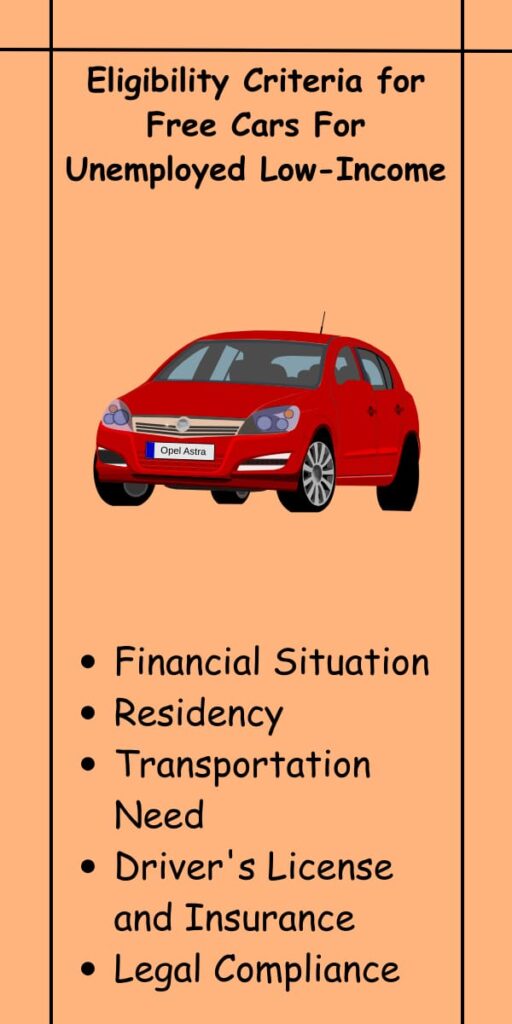
- Financial Situation: Eligibility for free cars for unemployed low-income individuals often hinges on their financial situation. Applicants must demonstrate that they are currently unemployed or earning a low income, making it challenging for them to afford a vehicle independently. This may involve providing proof of unemployment benefits, income statements, or documentation showing participation in government assistance programs. Additionally, some programs may consider applicants’ total household income to determine eligibility, taking into account factors such as family size and dependents.
- Residency: Many programs offering free cars require applicants to be legal residents of the area served by the organization or charity. Proof of residency, such as utility bills, lease agreements, or official identification documents showing a local address, may be required during the application process. In cases where applicants have recently relocated, they may need to provide documentation demonstrating their intent to establish residency in the area, such as a lease agreement or utility bill in their name.
- Transportation Need: Applicants must convincingly demonstrate their need for transportation assistance due to their unemployed or low-income status. This could involve detailing the challenges they face in accessing employment opportunities, attending essential appointments, or fulfilling other daily responsibilities without a reliable mode of transportation. Providing specific examples of how a lack of transportation has hindered their ability to secure employment or access critical services can strengthen their case for assistance.
- Driver’s License and Insurance: While not always mandatory, some programs may require applicants to possess a valid driver’s license and proof of insurance to ensure their ability to legally operate and maintain a vehicle. However, programs may also consider applicants without a driver’s license on a case-by-case basis, particularly if they plan to use the vehicle for other essential purposes, such as ridesharing. In such cases, applicants may need to demonstrate their willingness to obtain a driver’s license within a specified timeframe or enroll in a driver’s education program.
- Legal Compliance: Applicants must agree to abide by all legal requirements associated with owning and operating a vehicle, including maintaining proper registration, insurance coverage, and adherence to traffic laws. Failure to comply with these obligations may result in the forfeiture of the vehicle. Some programs may provide recipients with resources and guidance on meeting these requirements, while others may require applicants to demonstrate their understanding of these responsibilities during the application process.
Document Requirement for Free Cars For Unemployed Low-Income
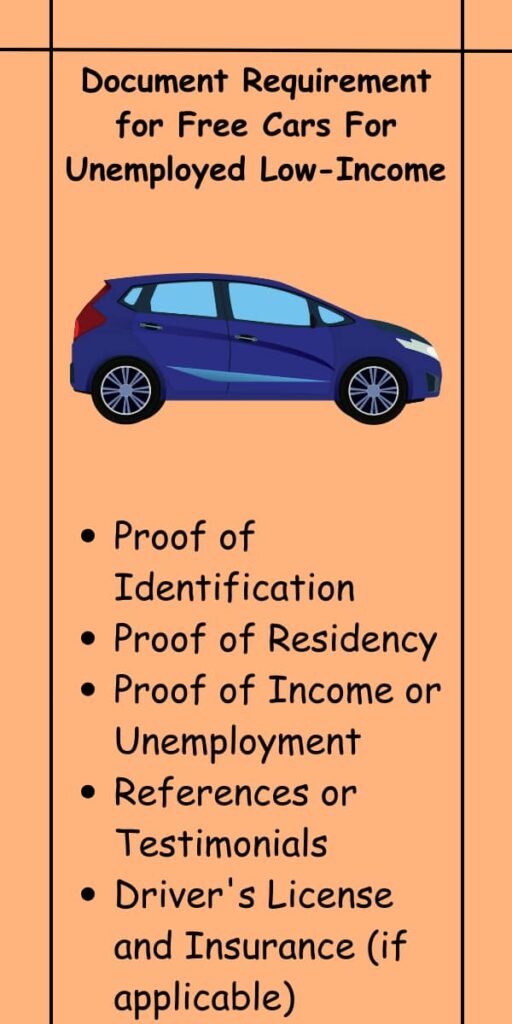
- Proof of Identification: Applicants typically need to provide valid proof of identification, such as a driver’s license, state ID, or passport, to verify their identity and residency status. Additionally, some programs may require applicants to provide proof of legal residency or citizenship, particularly if they are applying for government-funded assistance programs.
- Proof of Residency: Documentation establishing residency, such as utility bills, lease agreements, or official correspondence from government agencies, may be required to confirm the applicant’s local address. Applicants may need to provide documentation showing continuous residency within the service area of the organization or charity offering the free cars program, typically for a specified period, such as six months or one year.
- Proof of Income or Unemployment: Applicants must provide documentation demonstrating their current financial situation, including proof of unemployment benefits, income statements, or participation in government assistance programs. This may involve submitting recent pay stubs, tax returns, or statements from unemployment agencies confirming their eligibility for benefits. Some programs may also require applicants to provide information about their household income and expenses to assess their overall financial needs.
- References or Testimonials: Some programs may request references or testimonials from community members, social service agencies, or employers to corroborate the applicant’s need for transportation assistance and their commitment to utilizing the donated vehicle responsibly. These references may provide insight into the applicant’s character, reliability, and ability to benefit from the program. Applicants may need to provide contact information for individuals who can speak to their circumstances and verify the information provided in their application.
- Driver’s License and Insurance (if applicable): If required by the program, applicants must provide a valid driver’s license and proof of insurance to demonstrate their ability to legally operate and maintain a vehicle. Applicants may need to provide copies of their driver’s license and insurance policy or provide information about their plans to obtain these documents if they do not currently possess them. Some programs may offer assistance or resources to help applicants obtain their driver’s license or insurance coverage, particularly if they demonstrate a genuine need for transportation assistance.
Application Process for Free Cars For Unemployed Low-Income
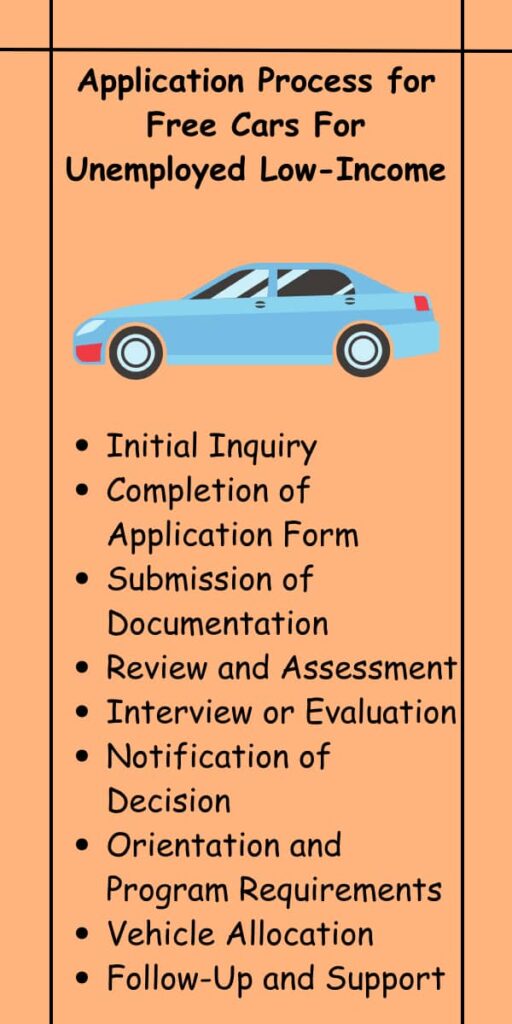
- Initial Inquiry: The application process typically begins with the applicant submitting an initial inquiry or expression of interest in obtaining a free car. This may involve contacting the organization facilitating the program via phone, email, or online inquiry form. Applicants may be directed to a designated contact person or department responsible for handling inquiries related to the program.
- Completion of Application Form: Upon receiving the initial inquiry, applicants are usually provided with an application form to complete. The application form collects essential information about the applicant’s personal details, financial situation, transportation needs, and any additional requirements set forth by the program. Applicants may need to provide detailed information about their household composition, sources of income, and expenses to help program administrators assess their eligibility and financial needs.
- Submission of Documentation: Along with the completed application form, applicants must submit all required documentation to support their eligibility for the program. This may include proof of identification, residency, income or unemployment status, references, and any other documents specified by the program administrators. Applicants may need to provide original documents or certified copies of certain documents to verify their authenticity.
- Review and Assessment: Once the application and supporting documentation are submitted, program administrators review and assess the applicant’s eligibility based on the established criteria. This may involve verifying the accuracy of the provided information, conducting background checks, and assessing the applicant’s demonstrated need for transportation assistance. Program administrators may review applications on a rolling basis or according to specific application deadlines, depending on the program’s policies and procedures.
- Interview or Evaluation: In some cases, applicants may be required to participate in an interview or evaluation as part of the application process. These interviews may serve to further evaluate the applicant’s eligibility and assess their readiness to responsibly manage a donated vehicle. Program administrators may ask applicants questions about their current financial situation, transportation needs, employment history, and plans for using the vehicle to improve their circumstances. Applicants may also have the opportunity to ask questions or seek clarification about the program’s requirements and expectations during the interview.
- Notification of Decision: After completing the review and assessment process, applicants are notified of the decision regarding their application. If approved, recipients are provided with details regarding the next steps, including vehicle allocation, orientation sessions, and any ongoing requirements or obligations associated with owning the donated vehicle. Applicants who are not selected may receive notification of their status and may be provided with information about alternative resources or programs that may be able to assist them.
- Orientation and Program Requirements: Upon acceptance into the program, recipients may be required to attend orientation sessions or complete additional program requirements before receiving the donated vehicle. These requirements may include signing legal agreements, attending training sessions on vehicle maintenance and safety, and agreeing to comply with program guidelines throughout the duration of their participation. Program administrators may provide recipients with information about available resources and support services to help them navigate the responsibilities of owning and operating a vehicle.
- Vehicle Allocation: Once all program requirements are fulfilled, recipients are allocated a donated vehicle based on availability and suitability. Program administrators assist recipients in completing any necessary paperwork for vehicle transfer and registration, ensuring a smooth transition to ownership. Recipients may be provided with information about the vehicle’s condition, maintenance history, and any repairs or upgrades that have been made to ensure its safety and reliability. Program administrators may also offer guidance on obtaining insurance coverage and maintaining the vehicle according to manufacturer recommendations.
- Follow-Up and Support: After receiving the donated vehicle, program administrators may offer follow-up support and assistance to recipients as they adjust to owning and operating a vehicle. This may include providing resources for vehicle maintenance and repairs, connecting recipients with additional support services, and conducting periodic check-ins to ensure recipients’ ongoing success and well-being. Recipients may be encouraged to participate in program evaluations or surveys to provide feedback on their experiences and suggest improvements to the program. Program administrators may also offer resources and referrals to help recipients address any challenges or barriers they may encounter during their participation in the program.
How Do Free Car Programs Help Unemployed People?
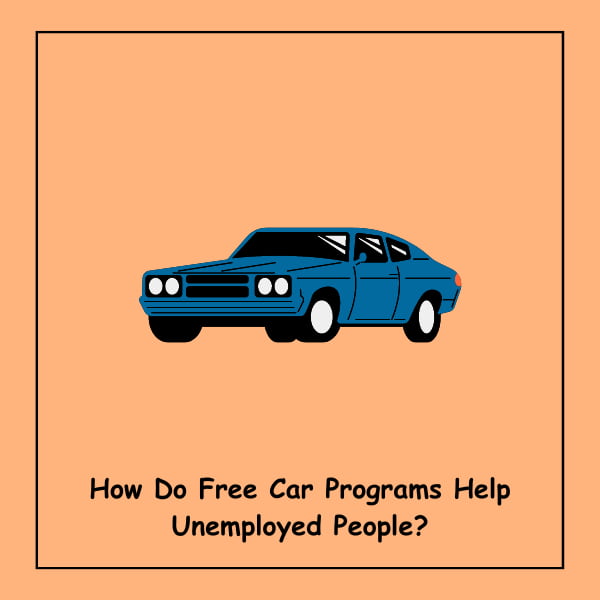
Free car programs play a crucial role in helping unemployed individuals regain their independence and access vital resources and opportunities.
By providing reliable transportation, these programs offer the following benefits to unemployed people:
- Access to Employment Opportunities: One of the primary ways that free car programs help unemployed individuals is by enabling them to access employment opportunities more readily. With reliable transportation, individuals can commute to job interviews, training sessions, and work locations, increasing their chances of securing employment. This access to employment opportunities can significantly improve the financial stability and well-being of unemployed individuals and their families.
- Improved Access to Essential Services: In addition to employment opportunities, free car programs help unemployed individuals access essential services such as healthcare, education, and social support networks. With reliable transportation, individuals can attend medical appointments, enroll in educational programs, and participate in community activities that promote personal and professional development. This improved access to essential services enhances the overall quality of life for unemployed individuals and enables them to address their basic needs more effectively.
- Increased Mobility and Independence: By providing a means of transportation, free car programs empower unemployed individuals to regain their mobility and independence. Rather than relying on public transportation or assistance from others, individuals can travel independently to meet their needs and pursue their goals. This increased mobility fosters a sense of empowerment and self-reliance, allowing unemployed individuals to take control of their lives and pursue opportunities for personal and professional growth.
- Reduction of Transportation Barriers: Transportation barriers often present significant obstacles for unemployed individuals seeking to improve their circumstances. Lack of reliable transportation can limit access to job opportunities, educational resources, and social networks, perpetuating cycles of poverty and unemployment. Free car programs help break down these barriers by providing individuals with a reliable mode of transportation, enabling them to overcome geographical limitations and access resources and opportunities that were previously out of reach.
- Promotion of Economic Mobility: Ultimately, free car programs play a crucial role in promoting economic mobility for unemployed individuals and their families. By providing access to transportation, these programs enable individuals to secure employment, access education and training, and participate fully in their communities. This increased economic mobility not only improves the financial well-being of unemployed individuals but also strengthens local economies and fosters social cohesion and inclusivity.
Organizations That Offer Free Cars For Unemployed
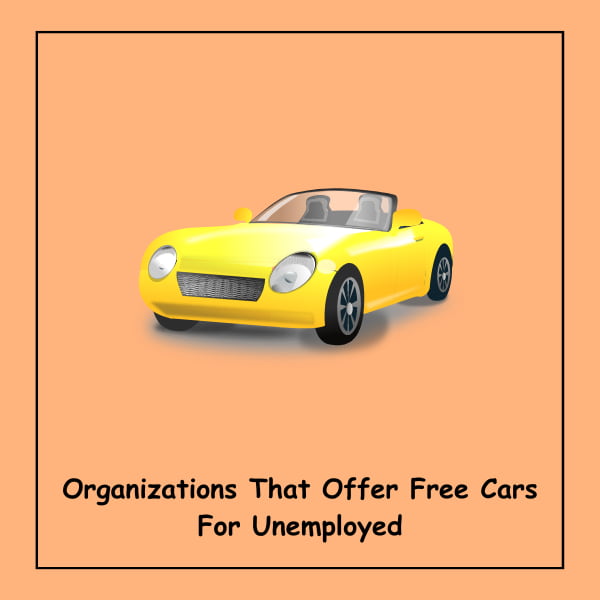
Several organizations across the United States are dedicated to providing free cars for unemployed individuals in need.
These organizations operate with the mission of addressing transportation barriers and promoting economic mobility for those facing unemployment. Here are some notable examples:
- Goodwill Industries International: Goodwill operates various programs aimed at assisting individuals in need, including those facing unemployment. Through their “Cars to Work” program and other initiatives, Goodwill provides donated vehicles to unemployed individuals, helping them access employment opportunities and achieve financial stability.
- Vehicles for Change: Vehicles for Change is a nonprofit organization that operates in multiple states, offering donated vehicles to low-income families, including those experiencing unemployment. Their programs focus on providing reliable transportation to individuals in need, enabling them to secure employment, attend job training programs, and access essential services.
- Working Cars for Working Families: This national initiative works with local partners and nonprofit organizations to provide donated vehicles to individuals facing financial hardship, including those who are unemployed. Working Cars for Working Families aims to bridge the transportation gap for low-income individuals, helping them overcome barriers to employment and self-sufficiency.
- Free Charity Cars: Free Charity Cars operates a vehicle donation program that allows individuals in need to apply for donated vehicles. Recipients are selected through a voting process, where members of the community vote for applicants they believe are most deserving of a free car. This grassroots approach allows individuals facing unemployment to receive support from their peers and community members.
- Local Nonprofit Organizations: In addition to national organizations, many local nonprofit organizations operate programs that provide free cars for unemployed individuals in their communities. These organizations may work with local car dealerships, businesses, and community members to secure donated vehicles and distribute them to those in need.
- Religious Institutions: Churches, synagogues, mosques, and other religious institutions often play a significant role in supporting their communities, including individuals facing unemployment. Many religious institutions operate programs or partner with local organizations to provide assistance, including free cars, to those in need.
- Community Action Agencies: Community Action Agencies (CAAs) are nonprofit organizations that work to alleviate poverty and empower individuals and families facing financial hardship. Some CAAs operate programs that provide transportation assistance, including free cars, to unemployed individuals seeking to improve their circumstances.
These organizations and initiatives exemplify the commitment of communities and charitable entities to support unemployed individuals by addressing transportation barriers and promoting economic mobility.
Through their collective efforts, they provide vital assistance to those in need, enabling them to overcome challenges and build brighter futures.
Other Places To Get Free Autos, Cars, And Trucks
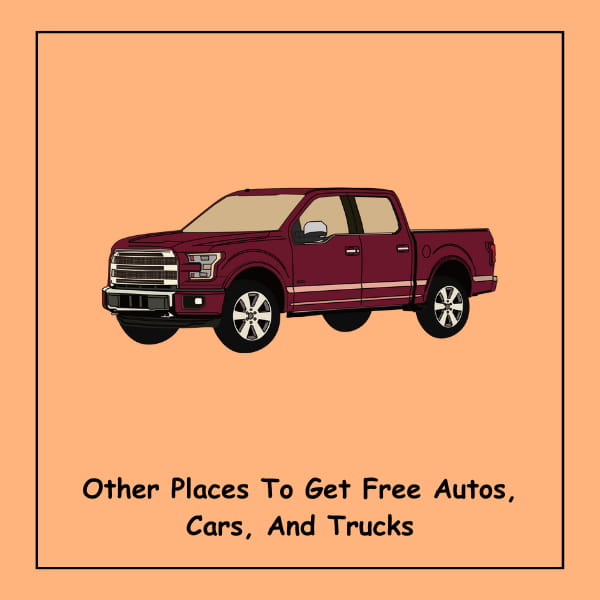
Aside from dedicated organizations and programs, there are several other avenues through which individuals may obtain free autos, cars, and trucks. These include:
- Government Assistance Programs: Various government assistance programs may offer support to individuals in need of transportation. For example, some state or local governments operate programs that provide free or low-cost vehicles to qualifying individuals, particularly those facing unemployment or financial hardship.
- Vehicle Donation Charities: Numerous charities and nonprofit organizations specialize in accepting vehicle donations and redistributing them to individuals in need. These charities may operate locally, regionally, or nationally, and they often accept donations of cars, trucks, and other vehicles in varying conditions.
- Online Platforms and Communities: Online platforms and communities, such as social media groups, forums, and classified advertisement websites, may serve as avenues for individuals to find free autos, cars, or trucks. Some individuals may offer vehicles for free or at a reduced price to those in need, particularly if they are motivated by a desire to help others or dispose of unwanted vehicles.
- Local Community Initiatives: Community-based initiatives, such as neighborhood associations, mutual aid groups, or grassroots organizations, may organize efforts to provide free vehicles to individuals facing hardship within their communities. These initiatives may rely on donations from community members or partnerships with local businesses to acquire and distribute vehicles to those in need.
- Vehicle Recycling Programs: Some vehicle recycling programs or salvage yards may offer free or low-cost vehicles to individuals willing to refurbish or repair them. While these vehicles may require some work to make them roadworthy, they can provide a cost-effective option for individuals seeking transportation assistance.
- Nonprofit Auto Repair Shops: Nonprofit auto repair shops or vocational training programs may offer refurbished or repaired vehicles to individuals in need. These organizations may partner with local charities or social service agencies to identify eligible recipients and provide them with reliable transportation options.
- Employer Assistance Programs: Some employers may offer assistance programs or incentives to help employees access transportation. This may include providing company vehicles for commuting purposes, offering transportation subsidies or allowances, or facilitating carpooling arrangements among employees.
- Community Events and Giveaways: Occasionally, community events or giveaways may include opportunities to receive free autos, cars, or trucks. These events may be sponsored by local businesses, organizations, or government agencies and may be advertised through community newsletters, websites, or social media platforms.
By exploring these alternative avenues, individuals facing transportation barriers may increase their chances of obtaining free autos, cars, or trucks to meet their needs and improve their quality of life.
While these options may vary in availability and accessibility depending on location and individual circumstances, they represent additional resources that individuals can consider when seeking assistance.
Things To Know When Applying For Financial Assistance To Get A Free Car

When applying for financial assistance to obtain a free car, there are several essential considerations to keep in mind:
- Eligibility Requirements: Before applying, carefully review the eligibility criteria set forth by the organization or program offering free cars. These criteria may include factors such as income level, employment status, residency, and demonstrated need for transportation assistance. Ensure that you meet all eligibility requirements before submitting your application.
- Documentation: Prepare all necessary documentation to support your application. This may include proof of identification, residency, income or unemployment status, and any additional documents required by the program administrators. Having these documents readily available will streamline the application process and increase your chances of success.
- Application Process: Familiarize yourself with the application process and follow all instructions provided by the organization or program. Complete the application form accurately and thoroughly, providing detailed information about your financial situation, transportation needs, and how receiving a free car would benefit you.
- Interviews or Assessments: Be prepared to participate in interviews or assessments as part of the application process. These interviews may serve to further evaluate your eligibility and assess your readiness to responsibly manage a donated vehicle. Approach these interviews with honesty and sincerity, and be prepared to discuss your circumstances and transportation needs openly.
- Program Requirements: Understand the requirements and obligations associated with receiving a free car through the program. This may include attending orientation sessions, maintaining the vehicle properly, and providing updates on your employment status. Complying with these requirements is essential to retaining ownership of the vehicle and benefiting fully from the program.
- Gratitude and Follow-Up: Express gratitude for the opportunity to receive a free car and recognize the generosity of the donors and organizations supporting the program. Following receipt of the vehicle, stay in contact with the program administrators and adhere to any follow-up requirements or support services offered. Paying it forward by supporting others in need when you are able to do so is a meaningful way to give back.
By keeping these key considerations in mind, you can navigate the process of applying for financial assistance to obtain a free car effectively and increase your chances of success.
Conclusion:
In conclusion, access to reliable transportation is essential for individuals facing unemployment or financial hardship to secure employment, access essential services, and improve their overall quality of life.
Free car programs and financial assistance initiatives play a vital role in addressing transportation barriers and promoting economic mobility for those in need.
Through the generosity of organizations, charities, and community initiatives, individuals can receive donated vehicles and access the support they need to regain their independence and pursue opportunities for personal and professional growth.
By providing access to transportation, these programs empower individuals to overcome obstacles, rebuild their lives, and achieve self-sufficiency.
As we continue to navigate challenges and uncertainties, it is essential to recognize the importance of supporting one another and extending a helping hand to those in need.
By working together and supporting initiatives that provide free cars and transportation assistance, we can create a more inclusive and supportive community where everyone has the opportunity to thrive.
[the_ad id=”39205″]
Frequently Asked Questions (FAQ):
How can I get a free car if I’m unemployed and low-income?
You can obtain a free car by applying to programs offered by various organizations and charities. These programs typically require you to meet specific eligibility criteria such as income level, employment status, and residency. You’ll need to complete an application form and provide necessary documentation to prove your eligibility.
What organizations offer free cars for unemployed low-income individuals?
Several organizations offer free cars, including Goodwill Industries, Vehicles for Change, 1-800-Charity Cars, and local community action agencies. You can also check with religious institutions and non-profit organizations in your area for potential programs.
What documents do I need to apply for a free car program?
Typically, you’ll need to provide proof of identification, proof of income or unemployment status, proof of residency, and any documentation that proves your participation in government assistance programs. Each program may have specific documentation requirements, so it’s important to check with the organization directly.
Are there any government programs that provide free cars for unemployed individuals?
While the federal government doesn’t directly provide free cars, some state and local government agencies may have programs or partnerships with non-profits to assist low-income and unemployed individuals with transportation needs.
How long does it take to get a free car after applying?
The time frame can vary depending on the organization and the availability of vehicles. It can take anywhere from a few weeks to several months. It’s important to stay in contact with the organization and follow up on your application status.
6. Can I choose the type of car I receive?
In most cases, you won’t be able to choose the specific type of car. The vehicles are typically donated and provided based on availability. However, organizations usually ensure that the cars are safe and roadworthy.
What if I’m not eligible for a free car program?
If you’re not eligible for a free car program, you can explore other options such as low-cost car programs, public transportation assistance, or car-sharing services. Some organizations may also offer financial assistance for purchasing a used car at a reduced price.
Are there any conditions or requirements after receiving a free car?
Yes, recipients of free cars may be required to maintain insurance, keep the car in good condition, and use the vehicle for purposes such as employment or education. Some programs may also require recipients to provide periodic updates on their employment status and how the car has impacted their lives.

